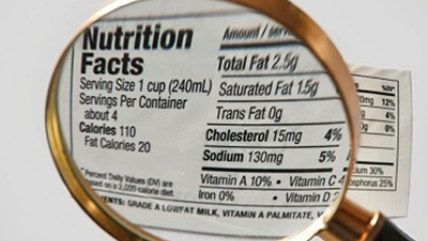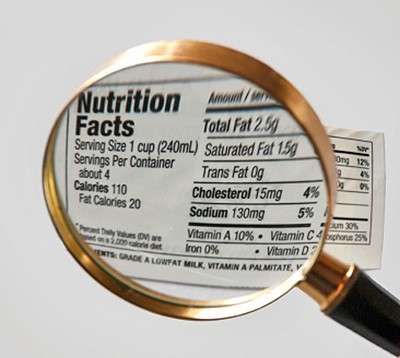Making the Case for Food Freedom and Free Speech
A series of important food lawsuits are fighting unconstitutional restrictions on free speech.


During a week in which we learned that dozens of Yale University students had signed a petition to repeal the First Amendment—which, after all, protects the freedom to petition, among other fundamental rights—it's no surprise that the state of free speech in America is, like many Americans, in rough shape.
That fact is no more evident than in several cases, in cities and states across the country, in which rules that apply to food have been used to stifle free speech.
Some of these laws compel speech. Others prohibit it. Still others do both.
This summer, for example, the American Beverage Association filed a lawsuit against San Francisco, as I described here and here, arguing that the city's bizarre new law targeting soda marketing compels some speech and prohibits other speech, both in violation of the First Amendment. That lawsuit is ongoing.
More recently, the National Restaurant Association (NRA) challenged New York City's awful new salt-labeling rules. The NRA's challenge was as predictable at is welcome. This summer, after the city's health department proposed the rules, the NRA submitted comments to the department on the proposed rules that referred to them as arbitrary and capricious and said the rules "violate[] the separation of powers doctrine, and would compel speech in violation of the First Amendment."
In the lawsuit, filed earlier this month, the NRA correctly likens the salt rules to the short-lived and controversial soda ban that went into effect under former mayor Michael Bloomberg and which the state's highest court overturned on grounds very similar to those on which the present suit was filed. The NRA says the health department "has required the disclosure of just enough inaccurate and controversial information about sodium in certain food items to cause far reaching negative consequences rather than help consumers and reduce public health risks."
Earlier this year, I sat on a panel at Seattle University Law School called "Re-Tooling Speech: What You Can Say about Your Food." Two of the ongoing cases I spoke about in Seattle—one a challenge to Vermont's mandatory GMO-labeling law, the other fighting to overturn Idaho's awful ag-gag law—are currently winding through federal court.
The former, filed by the Grocery Manufacturers Association, has yet to be decided. The State of Idaho just this month decided to appeal an August ruling that struck down its ag-gag law as violative of the First Amendment. That suit was filed by PETA and other animal-rights supporters.
While this string of assaults on free speech says at least as much about the state of the First Amendment in America today as does the petition and video from Yale, it also underscores a couple more hopeful notes. First, I believe each of these cases will ultimately prevail in favor of protecting free speech. Second, there's the very simple fact that in each case I've described where a state or local government violated the First Amendment rights of food makers (or, in the case of animal-rights supporters, of food activists), the victims of unconstitutional laws have sued to defend their rights. When large groups like the Grocery Manufacturers Association, American Beverage Association, PETA, and the National Restaurant Association sue to protect First Amendment violations, they're defending rights enjoyed by every American. When they win, we all win.
At the Seattle conference, I stressed how many food cases are helping to reshape the scope of traditional First Amendment law, and how those cases could in turn serve to expand or to contract both the food rights and free speech rights of American consumers and producers. The First Amendment is under attack. Victories for the plaintiffs in these important cases can help turn the tide in favor of free speech.


Show Comments (20)